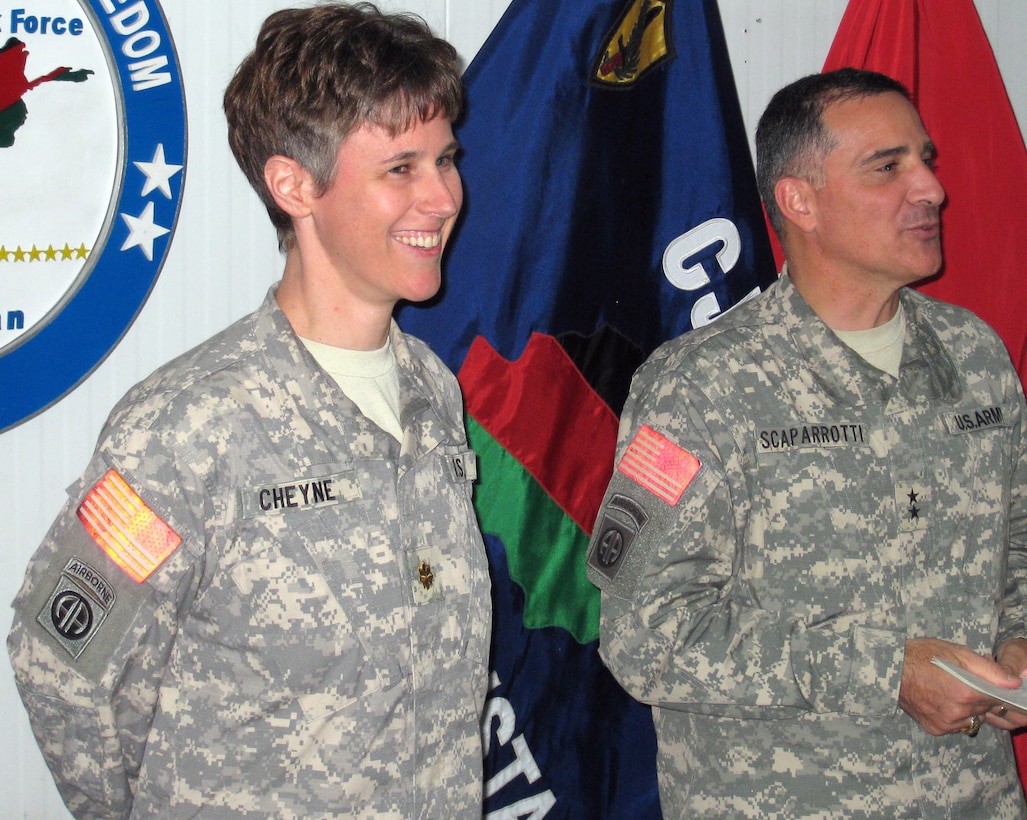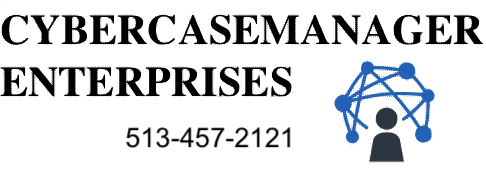4 KM team roles – updated example from the US Army
A while ago I posted 4 KM team roles from the US Army, based on their 2012 publication “Knowledge Management Operations”. Here is an update.
 |
| Lt. Col. Mary Cheyne; the knowledge management officer for the joint operations compound. U.S. Army photo by Barry Wilson |
The 2012 publication has been superseded by a newer one entitled “Techniques for effective knowledge management” dated March 2015. The newer publication contains an update of the job descriptions, which are reproduced below.
These are roles within a “KM Section” which is a local KM team attached to an operational command. In industry, you might find similar roles within an organisational division.
The knowledge management section (when assigned)
- provides advice and recommendations to commanders regarding how knowledge management improves shared understanding throughout the organization,
- advises the unit’s staff on knowledge management and tools to help the staff to manage explicit and tacit knowledge.
- supports unit learning before, during, and after operations and helps the staff develop and disseminate techniques and activities that create or transfer knowledge gained from operations.
- enhances mission command by helping organizations integrate information systems into the headquarters in a manner consistent with best knowledge management practices and operational requirements.
- builds and sustains knowledge architecture to connect people and help them to collaborate and rapidly share techniques, procedures; operational observations, insights, lessons, and knowledge products
- facilitates collaboration within networks and helps connect subject matter experts to enable individual and organizational learning
The KM section has potentially 4 different roles:
- Knowledge management officer.
- Assistant knowledge management officer.
- Knowledge management noncommissioned officer.
- Content management specialists.
The knowledge management officer directs the knowledge management section, ensures the knowledge management process and procedures are understood in the unit, demonstrates how these processes and procedures improve efficiency and shared understanding during training and enhance operational effectiveness during operations, especially in time-constrained environments. During operations, the knowledge management officer moves with the commander, or remains in the command post, as required.Responsibilities include:
- Creating an organizational knowledge network and metrics for evaluating its effectiveness.
- Developing knowledge management techniques, policies, and procedures and ensuring command-wide dissemination.
- Advising the commander and staff on integrating knowledge management practices throughout the organization.
- Writing the knowledge management annex to plans and orders and updating as necessary.
- Performing staff planning and coordination of knowledge management functions and activities to improve shared understanding, learning, and decision making.
- Leading efforts to identify gaps in organizational processes.
- Leading the staff in assessing unit knowledge processes.
- Synchronizing knowledge management functions and activities with higher commands and subordinate commands.
- Monitoring emerging knowledge management trends for incorporation into unit operations.
- Directing knowledge management working group efforts and facilitating its meetings.
The assistant knowledge management officer ensures section members understand the knowledge management process and tools. They understand the major processes used in the unit and the functions of the information systems that support those processes. Assistant knowledge management officers help the operations officer and signal staff officer map the processes and information systems that produce the common operational picture. The assistant knowledge management officer reports to the knowledge management office. Responsibilities include:
- Initiating, coordinating for, and maintaining a virtual right-seat ride capability.
- Understanding the supporting information systems and knowing the subject-matter experts that support those systems.
- Coordinating with battle captain and operations section to clearly understand how the operations process applies to unit’s battle rhythm.
- Executing knowledge management policies and plans in the knowledge management section.
- Developing, organizing and supervising implementation of the unit’s content management effort.
- Assisting the staff in knowledge analysis to answer commander’s critical information requirements.
- Seeking techniques to incorporate effective knowledge transfer and learning techniques into organizational learning.
- Mapping the unit’s knowledge management network.
- Developing metrics for evaluating knowledge management effectiveness.
- Identifying operationally relevant trends, observations, insights, and lessons; and significant actions.
- Ensuring efficient processes for directing requests for information.
- Coordinating with the signal staff officer to ensure connectivity to relevant information systems and networks.
- Overseeing knowledge management-related roles and responsibilities as directed by the knowledge management officer.
- Establishing procedures to monitor the appropriateness of a unit’s content.
- Developing the unit’s knowledge management training and certification program.
As the senior enlisted member of the knowledge management section, the knowledge management noncommissioned officer advises the knowledge management officer on ways to facilitate knowledge sharing in the staff; improving knowledge transfer, knowledge tools and processes; and other knowledge management matters. Knowledge management noncommissioned officers help integrate knowledge management training concepts into the unit’s individual and collective mission-essential tasks. They oversee knowledge management training certification programs. Responsibilities include:
- Assisting staff sections organize the command post’s layout to best facilitate staff interaction.
- Coordinating appropriate audiovisual displays of the common operational picture and other operationally relevant knowledge management products in command posts and other areas.
- Monitoring collaboration sites and knowledge networks and advising staff on relevant content.
- Addressing knowledge management aspects of operations security in coordination with the protection staff section.
- Collaborating with unit command sergeants major, battle staff noncommissioned officers, staff section noncommissioned officers in charge, network and information systems subject matter experts, and mission command system subject matter experts, to gain a clear understanding of critical processes in the mission command system.
- Advising on designing briefings and text documents.
- Helping design templates and formats for recurring knowledge products to increase standardization and reduce redundancy.
- Participating in the knowledge management working group.
- Ensuring the unit’s content management plan meets requirements and is implemented across the unit.
- Reviewing the unit’s file management techniques and directing adjustments as needed.
- Remaining abreast of current and future trends in knowledge management and content management and integrating them into unit operations as needed.
- Supervising training in knowledge transfer procedures.
- Serving as the unit’s expert for knowledge management tool and system training, design, and use.
- Coordinating with the operations officer and signal staff officer to incorporate knowledge management tools, systems, and information system architecture into the common operational picture input design and display.
- Coordinating with signal staff officer technical teams to identify and implement knowledge management initiatives.
- Ensuring after action reviews from previous events is considered in any new missions.
Content management specialists are experts on content management and retrieval. They ensure (explicit) knowledge is available to Soldiers when they need it. These specialists help the signal staff section manage digital content with tools that exchange explicit knowledge, collaborate, and connect with subject matter experts across the organization and the Army. They implement content management in the four task areas of creating, organizing, applying, and transferring knowledge. Each task area is associated with steps of knowledge management. Responsibilities include:
- Supporting implementation of the unit’s knowledge management policies and procedures.
- Searching for and capturing observations, insights, and lessons from other units and individuals via non-secure and secure internet protocol router networks and forums, as related to content management.
- Facilitating knowledge transfer between units, Soldiers, and leaders.
- Reviewing the unit’s file management techniques and directing adjustments as needed.
- Developing comprehensive document naming conventions, data-tagging policies, and data organization for the unit consistent with Army policies.
- Training staff members to organize and obtain explicit knowledge stored in knowledge networks, databases, and information systems.
- Helping review databases and web sites to determine the security and relevance of content.
- Helping the knowledge management noncommissioned officer design briefings, documents, templates, and other knowledge products.
- Helping the knowledge management officer and the assistant provide expertise and training in using knowledge management tools, processes, and systems.
- Helping the battle staff noncommissioned officer and battle captain exercise content management specifically in the mission command system.
- Understanding current and future trends in knowledge management and content management.
- Coordinating with the signal staff (through the knowledge management officer) on incorporating current standards to improve information search and retrieval across various data sources.
- Coordinating with signal staff for information assurance and information security matters as related to content management.
- Supervising and performing knowledge management training including content management procedures.

Leave a Reply